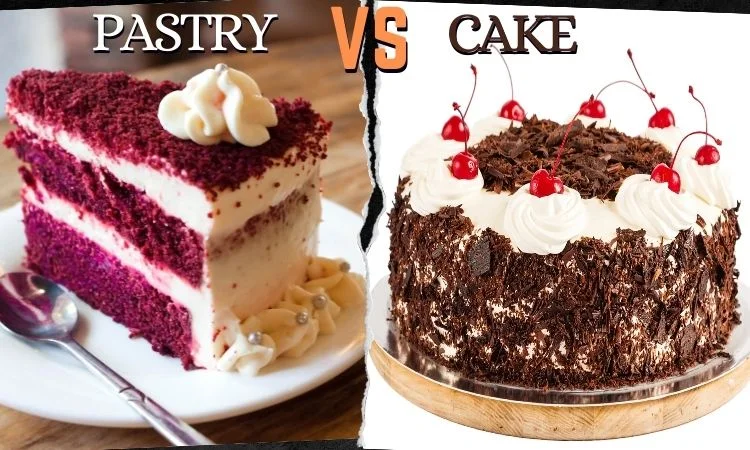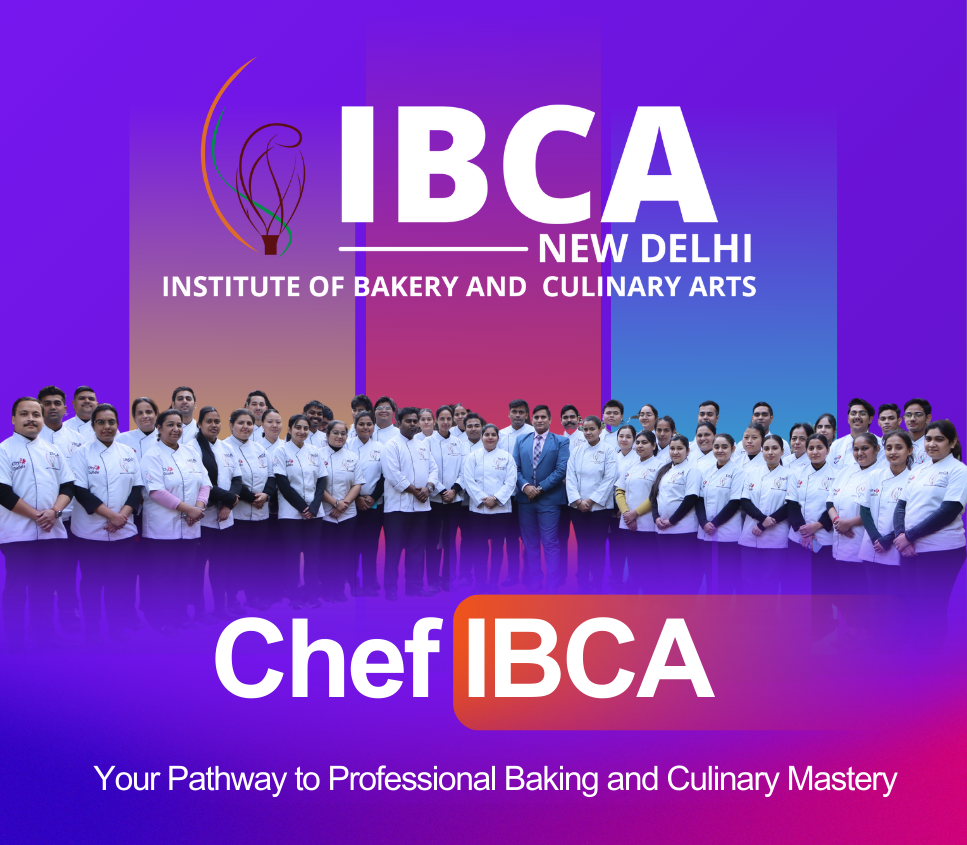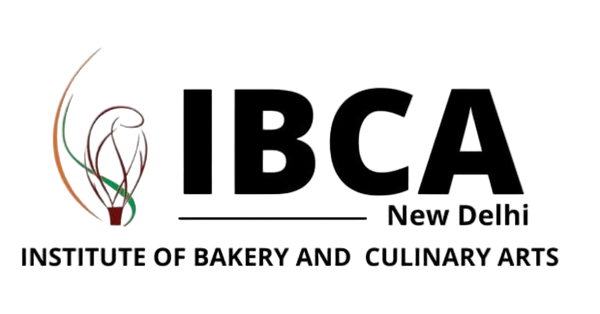Cakes and pastries — newsworthy superstars on the dessert scene but what exactly makes them unique? They are both sweet treats, but they have much different uses in the kitchen than one would think. Whether you are a home baker or interested in knowing the love of cooking, this article will clear the air on what sets cake apart from its pastries. This comparison will assist you in exploring various concepts of pastry courses for beginners and hold a clear concept of these two iconic treats as it marks your short glimpse to start an exciting journey in the field of baking.
What is Cake?
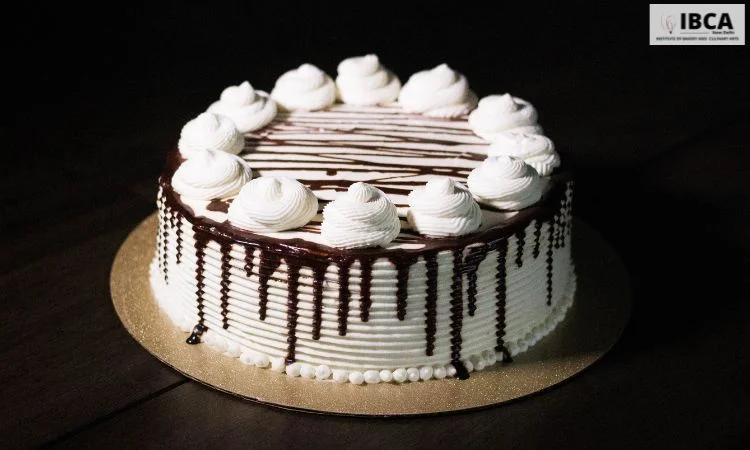
Cake is a form of sweet food made from flour, sugar, and other ingredients, that is usually baked. Cake is a form of sweet food that varies in taste and is one of the things prepared by bakers. It is made using flour, sugar, eggs, butter or oil water, and leavening agents. Cake, the celebrity of birthdays and weddings — versatile in sizes, designs, and flavors. From a thick, moist pound cake to a lighter sponge cake and flavors from chocolate to vanilla to fruity.
What is Pastry?
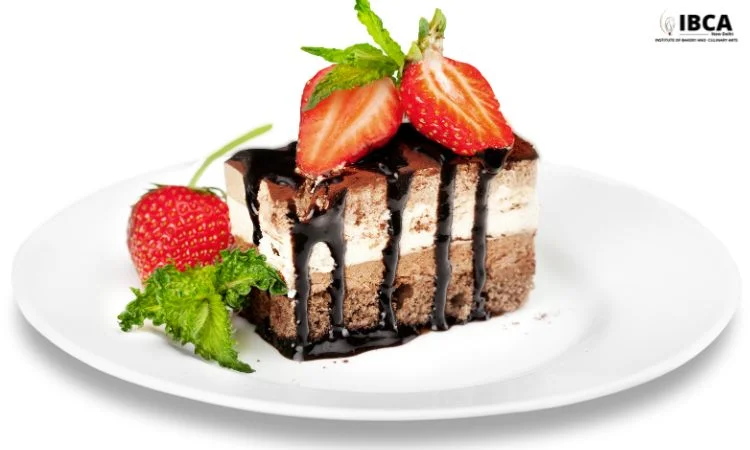
Pastry refers to something like dough as the base for pies, tarts, and croissants. Made with flour, water and some form of fat — butter or shortening is common. Buttery, flaky layers reminiscent of puff pastry are created by the extreme delicacy and heartiness of the dough. Pastries, on the other hand, are frequently less tender than cake and also contain more complex textures—often crisp on the outside and tender on the inside—but this is what makes them ideal for many desserts, including sweet or savory snacks.
Difference Between Cake and Pastry: A Detailed Comparison
Now that we’ve defined Discover the difference between cake and pastry in this guide. Learn about their ingredients, shapes, and flavors to choose the right dessert for you., let’s break down the real differences between them through various factors like ingredients, shape, flavors, design, presentation, and occasions.
Ingredients
- Cake: The core ingredients in a cake are flour, sugar, eggs, butter, and leavening agents like baking powder or soda. Cake batters often include additional elements such as milk, cream, or buttermilk, making the final product moist and soft. Depending on the type of cake, ingredients like cocoa powder, fruits, nuts, and flavorings such as vanilla or almond extract can be added.
- Pastry: Making a savory or sweet side is usually only 3 ingredients: flour, fat (you could use butter or shortening), and water. It is the fat that gives pastries the beautiful layers of flaky dough. The type of the pastry will depend on its filling, whether it is sweetened with sugar or not. In traditional pastries, fats from eggs or milk are another possible source of richness, but they complement rather than substitute for the moisture that does all the textural heavy lifting.
Shape
- Cake: Round or rectangular, cakes come in all sizes—from tiny cupcakes to large, multi-layered versions—their shape depends on the mold that contains them. It is structurally stacked, most often with a broad yet consistent shape made with uniform layers on top of each other.
- Pastry: Pastries, Instead come in various shapes and forms. Pastries come in many forms; from croissants, to puff pastry squares and many tart shells. They come in freeform or molded shapes, better allowing for visual diversity across recipes.
Flavors
Cake: Cake flavors are vast and diverse. Chocolate, vanilla, red velvet, carrot, and lemon are among the most popular options. Cakes in some cases have icing or other toppings and contain flavors to cream and include fruit, nuts, such as raisins. These things usually add to the sweet factor of a cake.
Pastry: Like Savory, Dry food works very well in pastries, as these do not interfere with the flavor of the dough; The traditional pizzas feature this type. Fillings ranging from cream to fruit, to custard, and even flavorful materials more befitting of queer ingredients like cheese or meat all yield flavors.
Design and Presentation
Cakes: Known for versatile design options. According to the cake, you can portray whatever design it intends on the recipient. As a result, bakers use fondant, buttercream, or ganache to make various intricate decorations. Cakes are often the star of life’s events, wedding event cakes or birthday cakes… depending on what you bake.
Pastry: Pastries focus more on technique than decoration. Their beauty lies in the flaky layers or the golden, crisp exterior that results from careful preparation. While they are usually not as visually dramatic as cakes, pastries can be artfully arranged and served, especially when made into elegant desserts like eclairs, tarts, or mille-feuille.
Occasions
Cake: Special occasions have to include cake, right? No celebration is complete without a cake and whether you are celebrating birthdays, weddings or anniversaries cakes have to be present to just lift the spirit of everyone. This is why cake and marriage go so well together; celebrating, indulging, and general happiness. And for serving large crowds nothing beats a layer cake.
Pastry: Pastries on the other hand can be offered all day. Cakes are eaten only for special occasions, while pastries come in handy when you want to have something during breakfast or some snacks or a light dessert. Croissants at breakfast, puff pastry tart for tonight — something sweet and flaky after that destined-to-be-satisfying meal.
Conclusion
To conclude, Cakes and pastries are cakes because of the common baked goods they share but differentiate based on their ingredients, texture, shape, flavors, and usages. Cakes are essential to any celebratory occasion, usually opulent, sweet, and intricately styled. They are dainty, and fragile, and can be a salty option if it is not sweet such as pastries that are fitting for any occasion.
Considering it takes a certain skill to prepare, one can train how to make cakes and pastries by enrolling in beginner pastry courses. While exploring this wonderful world, you will come to know the wide array of all that we can derive from a bakery.


